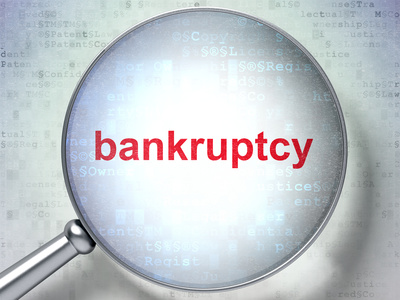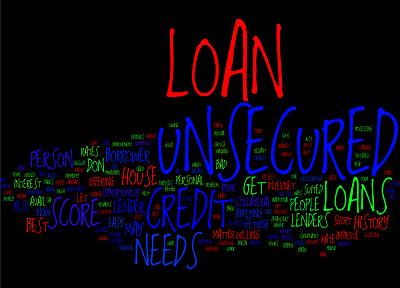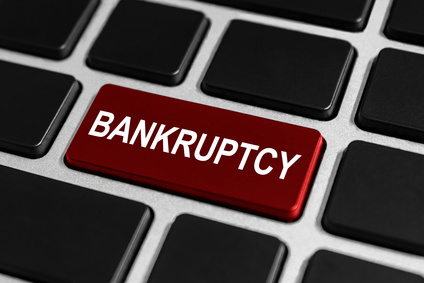The U.S. Court of Appeals for the Sixth Circuit recently held that a debtor’s claim seeking to use a bankruptcy trustee’s § 544(a) strong-arm power to avoid a mortgage on the ground that it was never perfected did not require appellate review of the state court foreclosure judgment, and therefore was not barred by the Rooker-Feldman doctrine. A copy of the opinion in In re Isaacs is available at: Link to Opinion. In 2003, the debtor and her husband took out a home-equity loan secured by a mortgage on their home in Kentucky. The original mortgagee did not immediately record…
Posts tagged as “Bankruptcy”
The U.S. Bankruptcy Appellate Panel for the Eighth Circuit recently applied the “conceivable effect” test in holding that a bankruptcy court lacked jurisdiction over a state law fraud claim raised by a third party regarding the validity of a lender’s lien, and therefore, declined to consider the issue on appeal. In so ruling, the Panel ruled that the state law fraud claim did not invoke “arising under” or “arising in” jurisdiction of the bankruptcy court because the state law fraud claim was not created or determined by the Bankruptcy Code, and could exist outside of bankruptcy. A copy of the…
The U.S. Court of Appeals for the Ninth Circuit held that a party with a pecuniary interest affected by a bankruptcy court order satisfies the “person aggrieved” requirement for appellate standing even where the party fails to appear and object in the bankruptcy proceeding. Accordingly, the Ninth Circuit reversed the district court’s dismissal of the appeal for lack of standing and remanded the case. A copy of the opinion in In re Point Center Financial is available at: Link to Opinion. The debtor in this action was an originator and servicer of residential mortgage loans (“lender”). The lender obtained funding…
The U.S. Court of Appeals for the Eleventh Circuit recently vacated a trial court’s dismissal of a mortgagee’s deficiency claims and remanded to the trial court to determine whether the voluntary dismissal of a bankrupt debtor’s Chapter 11 case without a discharge had any effect on the mortgagee’s right to pursue its pre-petition deficiency claims. A copy of the opinion in First National Bank of Oneida, N.A. v. Brandt is available at: Link to Opinion. The debtor, a real estate investor and developer, filed a Chapter 11 bankruptcy case in July 2009 after he defaulted on a series of real estate loans. The…
In an action against a Florida consumer plaintiffs’ firm that also functions as consumer bankruptcy debtors’ counsel, the U.S. Court of Appeals for the Eleventh Circuit recently held that a bankruptcy attorney violates section 526(a)(4) of the Bankruptcy Code if he instructs a client to pay his legal fees using a credit card. In so ruling, the Court held that there is no requirement under the statute that the advice be given for an invalid purpose designed to manipulate the bankruptcy process. A copy of the opinion in Loyd P. Cadwell v. Kaufman, Englett & Lynd, PLLC is available at: Link…
The U.S. Court of Appeals for the Fourth Circuit recently held that a completely unsecured lien may be stripped off in a Chapter 13 bankruptcy proceeding under 11 U.S.C. § 1322(b) even though a proof of claim has not been filed. A copy of the opinion in Edwin Burkhart v. Nancy Spencer Grigsby is available at: Link to Opinion. Debtors filed a Chapter 13 bankruptcy petition in 2012. At the time, the debtors’ principal residence was valued at $435,000 and encumbered by four liens. Creditor 1 held the mortgage lien with the highest priority in the amount due of $609,500. Creditor 2’s two…
The Bankruptcy Appellate Panel of the Sixth Circuit recently held that the constructive notice provisions of section 1301.401 of the Ohio Revised Code do not limit a bankruptcy trustee’s avoidance powers as a hypothetical judgment lien creditor under section 544(a)(1) of the federal Bankruptcy Code. A copy of the opinion in In re Oakes is available at: Link to Opinion. In 2013, two debtors filed a petition for Chapter 7 bankruptcy protection. The debtors’ schedules listed the subject property and three mortgages against the subject property, two of which were held by the same mortgagee (“lender”). In 2014, the bankruptcy trustee…
The District Court of Appeal of the State of Florida, Fourth District, recently reversed a trial court’s order denying two borrowers’ request for attorney’s fees and costs on judicial estoppel grounds. In so ruling, the Fourth DCA held that the trial court improperly relied on a Fifth Circuit case and failed to apply Florida’s judicial estoppel doctrine when it concluded that the borrowers’ failure to disclose their attorney’s fee claim in their Chapter 11 bankruptcy schedules barred the fee claim. A copy of the opinion in Anfriany v. Deutsche Bank National Trust is available at: Link to Opinion. In 2008, the…
11th Cir. Rejects Challenge to Debtors’ Ability to Recover Attorney’s Fees in Stay Violation Actions



The U.S. Court of Appeals for the Eleventh Circuit recently held, in a case of first impression, that “the Bankruptcy Code authorizes payment of attorneys’ fees and costs incurred by debtors in successfully pursuing an action for damages resulting from the violation of the automatic stay and in defending the damages award on appeal.” A copy of the opinion in Mary Beth Mantiply v. Patricia Nelson Horne is available at: Link to Opinion. Husband and wife filed for Chapter 7 bankruptcy in 2011 and received a discharge five months later. The husband passed away and his daughter was substituted as personal…
9th Cir. Limits Subsequent Good-Faith Transferee Exception in Bankruptcy Fraudulent Transfer Actions


The U.S. Court of Appeals for the Ninth Circuit recently held that a debtor corporation’s sole shareholder and third parties who sold real property and services to the sole shareholder could be liable for fraudulent transfers. In so ruling, the Ninth Circuit held that the third parties were initial transferees of the debtor corporation’s funds because the sole shareholder paid the third parties with checks directly from a corporate account, even though the third parties did not have a pre-existing relationship or an ongoing relationship with the sole shareholder, his family, or any of his businesses. A copy of this…
The U.S. Bankruptcy Appellate Panel for the Eighth Circuit recently affirmed a bankruptcy court’s holding that a creditor held an unenforceable lien against a debtor’s real property because the property was owned by the entireties and the lien was thus avoidable under Bankruptcy Code § 522(f)(1). A copy of the opinion in CRP Holdings v. O’Sullivan is available at: Link to Opinion. The debtor and his wife purchased real property in Missouri in 1995. A limited liability company obtained a judgment against the debtor in Missouri and recorded the judgment in the county where the debtor lived. The debtor filed a…
The U.S. Court of Appeals for the Ninth Circuit recently held that, where husband and wife debtors fraudulently transferred assets, the creditor was entitled to the full sum the creditor would have recovered and was not limited to the amount of the collateralized debt. In so ruling, the Ninth Circuit reversed a bankruptcy court and trial court judgment in the creditor’s favor that the debt was non-dischargeable due to the debtor’s fraud, but improperly limiting the non-dischargeable debt to only the collateralized amount. A copy of the opinion in DZ Bank AG Deutsche Zentral-Genossenschaft Bank v. Meyer is available at: Link to Opinion.…








